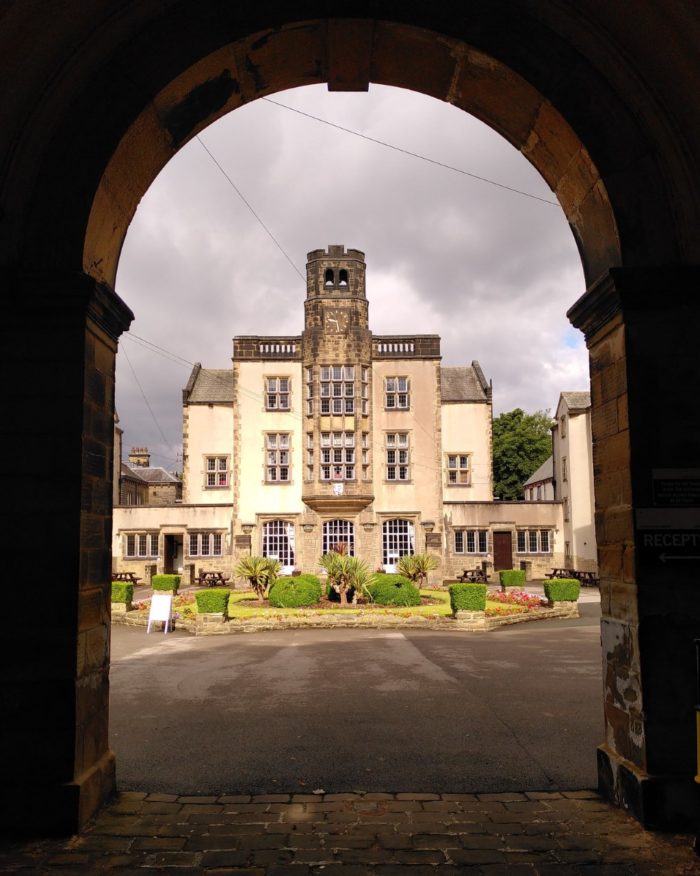Decolonising Extinction Studies workshop, June 2022
Sicily Fiennes
As we're all finding, the summer is a ripe opportunity for courses and for us who are PhD students, it's an even better opportunity to complement your first year of PhD work.
On the 29th and 30th of June, students from the cohort of the Extinction Studies DTP and other affiliated students gathered in Leeds for an exciting in-person event on 'Decolonising Extinction Studies' at Devonshire Hall, usually a student accommodation. This course was a 'Crucible' style event that involved a creative and interdisciplinary set of activities designed to encourage early career researchers to think broadly about the narratives around extinction. The course structure largely revolved around talks by our wonderful speakers (Dr Mordecai Ogada and Dr Juno Salazar Parreñas), who were kind enough to join us online remotely.

The first day was focused on a talk by the Kenyan conservationist, Dr Mordecai Ogada (https://ogada.co.ke/). One notable comedic highlight of the event was that before Mordecai was due to talk, we realised that Professor George Holmes (one of the workshop hosts and supervisors on the Extinction Studies DTP) had a portrait of Queen Elizabeth behind him. This was ironic given that we were dealing with contentions of coloniality and the role of empire in conservation. Although initially humourous, this proved to be a ripe opportunity for discussions of the colonial roots of the conservation sector, which was an integral part of Mordecai's talk. Mordecai also spoke of fortress conservation efforts across Africa and how this had impacted members of the Maasai community in Kenya particularly.
Mordecai's talk was followed by reflexive exercises in working groups, examining ways to retell or re-imagine the extinction story of Sudan, the last male individual of the Northern white rhino subspecies. The rationale behind this exercise was to contend with the, at times, problematic narratives surrounding Sudan's death (https://www.tandfonline.com/doi/abs/10.1080/14649365.2021.1876910?journalCode=rscg20).
On day 2, we presented these extinction stories to Mordecai. My group decided to offer a mock panel between local people from Sudan's 'original' home Sudan, international geneticists, and representatives from the Kenyan Wildlife Service.
Many of these stories incorporated more voices from the local community and challenged the exclusionary, neocolonial practices of many African conservation practices. As a training exercise, this proved to be a lively and engaging way to explore curiosity and new ways of understanding the decolonisation of extinction.
Simply, decolonisation is the process of undoing colonising practices. Throughout this course, we also sought to theorise what decolonising extinction might mean, which follows broader efforts to decolonise academia and curriculums.
Our final speaker was Dr Juno Salazar Parreñas, a Filipina American feminist science studies scholar. In her talk, Juno largely focussed on her work on 'Decolonizing Extinction: The Work of Care in Orangutan Rehabilitation', which took place in Sarawak, Malaysia.
Her talk was a thought-provoking discussion on the realities and violence of animal rehabilitation studies, particularly focussing on the sexual behaviours of orangutans and the violence often needed to rehabilitate wildness in orangutans. Sexual behaviours that were a useful metaphor for environmental destruction include what is known as 'forced copulation.' Parreñas conceptualises the decolonising of extinction by attending to how extinction might unfold for those who will perish and survive and by understanding the process of Orangutan Rehabilitation as an Experiment of Decolonisation.
If you are interested in broader discussions and debates around decolonising extinction and academia, feel free to peruse this reading list: https://helenkara.com/2020/07/29/decolonising-methods-a-reading-list/.
